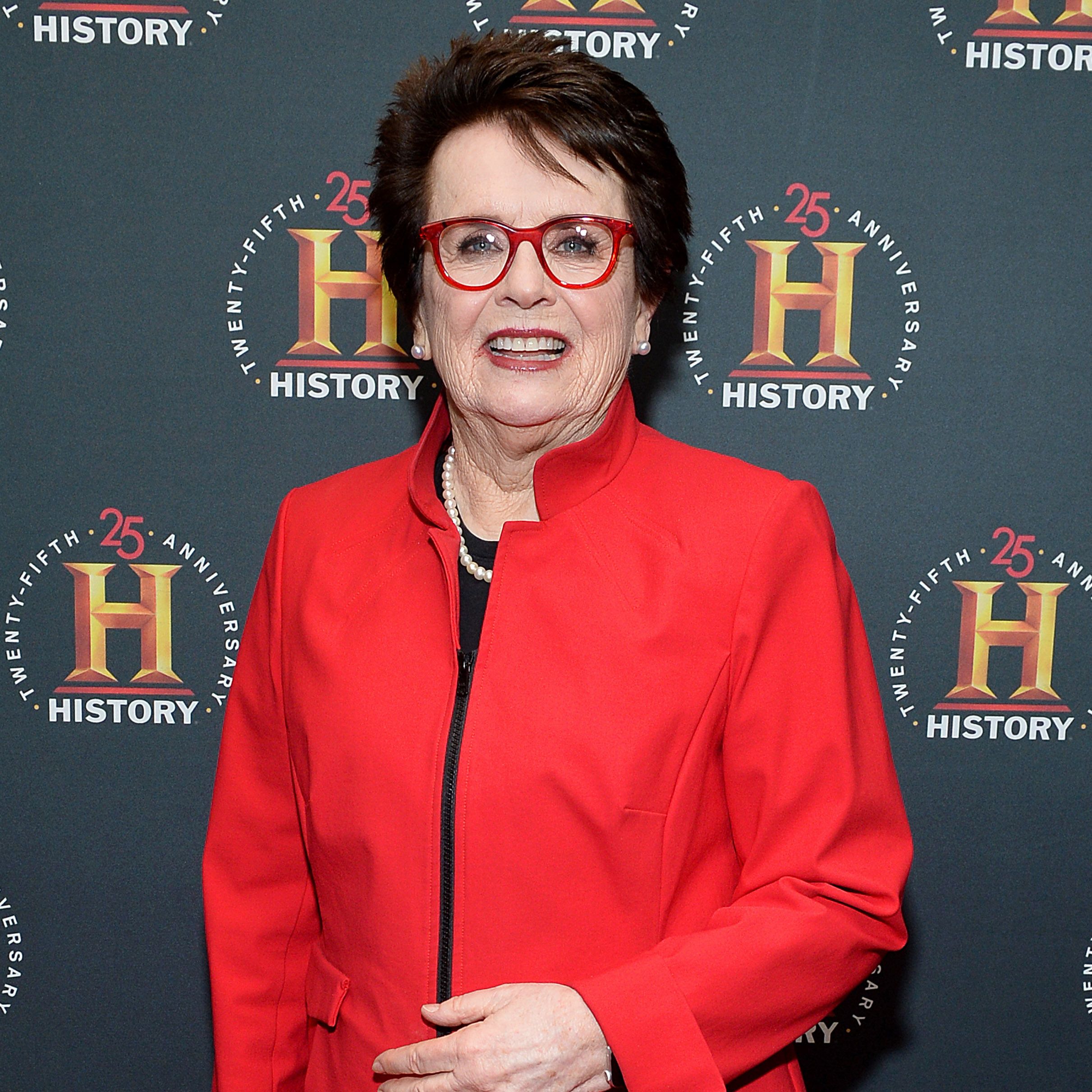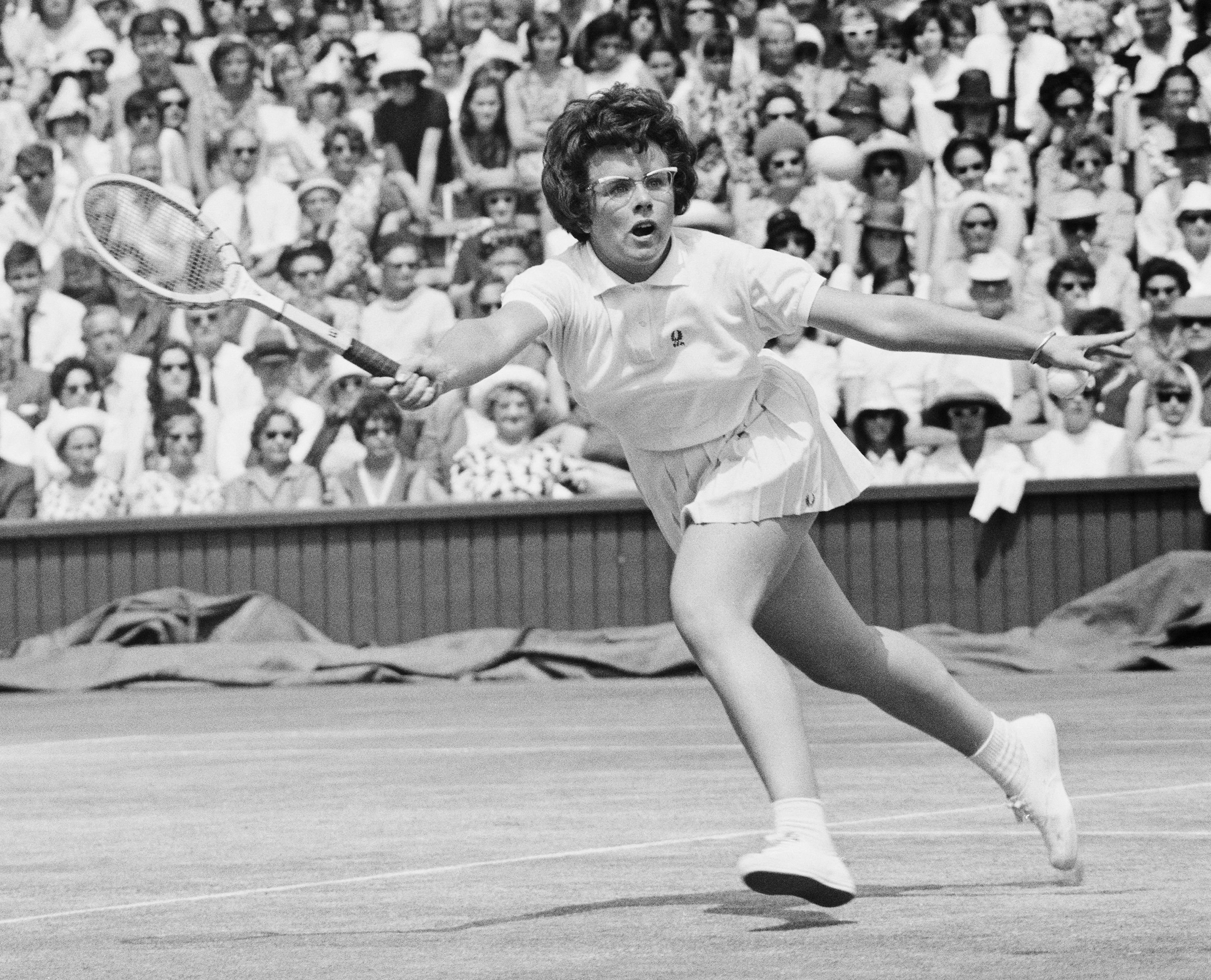The Life And Times Of Billie Jean King [For Aspiring Athletes]
Billie Jean King is not just a tennis legend; she’s a revolutionary figure who transformed the landscape of sports and gender equality. What can we learn from her journey?
Author:Suleman ShahReviewer:Han JuNov 07, 202432.5K Shares524.8K Views

Billie Jean Kingstands as a monumental figure in sports history, recognized not only for her extraordinary achievements on the tennis court but also for her unwavering commitment to gender equality and social justice.
Her journey, from a young girl growing up in Long Beach, California, to becoming a global icon, reflects her tenacity, talent, and passion for advocacy.
King’s legacy transcends tennis, inspiring countless athletes and advocates for equality around the world.
Early Life And Background
Born on November 22, 1943, Billie Jean Moffitt was raised in a conservative Methodist family. Her father, Bill, was a firefighter, and her mother, Betty, a homemaker.
With a family steeped in athleticism-her mother excelled in swimming, and her father participated in multiple sports-Billie Jean was encouraged to pursue her interests in sports from a young age.
She initially gravitated toward baseball and softball, where she demonstrated her competitive spirit by playing on a team with older girls.
At the age of 11, after her parents suggested a more "ladylike" sport, she took up tennis. With determination, she saved $8 to buy her first racket and sought out free lessons on public courts in Long Beach.
One memorable incident occurred when she was barred from a group photo for wearing tennis shorts instead of the traditional dress, setting the stage for her future as a trailblazer challenging norms in the world of sports.
Rise In Tennis
Billie Jean King's rise to prominence began in 1959 when she turned professional at just 15 years old. Her career flourished over the next two decades, during which she would secure a remarkable 39 Grand Slam titles—12 in singles, 16 in women's doubles, and 11 in mixed doubles.
Career Achievements Overview
| Category | Titles |
| Grand Slam Singles Titles | 12 (1966–68, 1972–73, 1975) |
| Grand Slam Doubles Titles | 16 |
| Grand Slam Mixed Doubles | 11 |
| Total Titles | 129 |
King first gained international recognition in 1961 by winning the Wimbledon women’s doubles championship with her partner Karen Hantze, making them the youngest team to achieve this feat.
Her singles career reached its peak when she won six Wimbledon titles and captured the U.S. Open title four times. Her tenacity and aggressive playing style, characterized by swift footwork and a powerful net game, set her apart from her contemporaries.
Notably, she became the first female athlete to earn over $100,000 in a single season in 1971, a milestone that underscored her impact on the sport.
Watch Billie Jean King in Action:

Best of Billie Jean King at the US Open
The Battle Of The Sexes And Its Impact
A defining moment in King's career came in 1973 when she faced Bobby Riggs in the highly publicized "Battle of the Sexes." Riggs, a former champion, claimed that he could beat any top female player, even at 55 years old.
King, understanding the cultural significance of this match, accepted the challenge. On September 20, 1973, she won decisively in straight sets, 6-4, 6-3, 6-3, in front of an audience of 90 million worldwide.
Key Takeaways From The Match:
- Significance: The match challenged gender stereotypes in sports.
- Cultural Impact: It brought visibility to women in sports, showcasing their competitive capabilities.
- King's Perspective: King stated, "I thought it would set us back 50 years if I didn't win that match."
This victory was not only a personal triumph; it was a landmark moment in the fight for gender equality in sports, reinforcing the message that women could compete at the highest levels.
Advocacy For Gender Equality And Social Justice
Beyond her athletic achievements, Billie Jean King has been a relentless advocate for gender equality and social justice. In 1971, she co-founded the Women’s Tennis Association (WTA), uniting female players to demand equal treatment in a sport long dominated by men.
Her advocacy efforts culminated in the U.S. Open becoming the first major tournament to offer equal prize money for men and women in 1973.
Impact Of King's Advocacy:
| Initiative | Outcome |
| Founding of WTA | Empowered female players and established a voice. |
| Equal Pay at U.S. Open (1973) | Set a precedent for equal prize money in sports. |
| Support for Title IX | Prohibited sex-based discrimination in education. |
King's commitment to equality extended to her support of Title IX, legislation that prohibits sex-based discrimination in federally funded education programs, including athletics.
Her advocacy has led to significant changes in women’s sports, inspiring future generations of athletes to fight for their rights. King once said, "Women have to work harder to be taken seriously. We have to be excellent."
Reflecting on Her Journey:

Billie Jean King reflects on accomplishments on and off the court
Net Worth And Financial Success
Billie Jean King's financial success goes beyond her tournament winnings. With an estimated net worth of $20 million, she has been a savvy businesswoman throughout her career.
In 2018, she and her wife, Ilana Kloss, became minority owners of the Los Angeles Dodgers, a significant investment reflecting her lifelong passion for sports.
King's involvement in sports business extends to her stake in the WNBA's Los Angeles Sparksand her role as a player-coach in the World TeamTennis (WTT)league, which she helped co-found.
Her pioneering efforts have opened doors for women in sports management and business, showcasing that female athletes can thrive beyond their playing careers.
Awards And Recognitions
King’s contributions to tennis and society have not gone unrecognized. She was inducted into the International Tennis Hall of Fame in 1987 and has received numerous accolades, including the Presidential Medal of Freedom in 2009.
The U.S. Open venue was renamed the Billie Jean King National Tennis Center in 2006, honoring her impact on the sport.
Key Awards Timeline
| Year | Award |
| 1987 | Inducted into the International Tennis Hall of Fame |
| 2006 | Renamed USTA National Tennis Center |
| 2009 | Awarded the Presidential Medal of Freedom |
| 2020 | Federation Cup renamed to Billie Jean King Cup |
| 2023 | Congressional Gold Medal |
Her many awards highlight her role as a leader and pioneer, inspiring generations of athletes and advocates for equality.
Legacy And Influence On Modern Athletes
Billie Jean King’s legacy continues to inspire athletes today. Her courage in challenging the status quo has paved the way for sports figures like Serena Williams and Naomi Osaka, who advocate for equal pay and social justice.
King’s openness about her sexualityalso provided a path for LGBTQ+ athletes to embrace their identities publicly, significantly influencing a culture of acceptance and representation within sports.
Personal Life And Legacy
A key part of King’s personal lifeand legacy is her long-time partner, Ilana Kloss, who has been by her side through both triumphs and challenges. Their relationship blossomed in the 1980s, and they married in 2018.
Kloss, a former professional tennis player herself, has been an advocate for equality and has worked alongside King to promote the rights of women and the LGBTQ+ community.
Together, they have demonstrated the power of love and partnership in advocating for social change, making strides toward inclusivity both on and off the court.
Current athletes recognize the significance of King’s contributions. Her advocacy for equality and inclusivity has set a powerful example, encouraging athletes across all sports to use their platforms for positive change.
Quotes From Modern Athletes
- Serena Williams: "Billie Jean paved the way for all of us."
- Naomi Osaka: "Her fight for equality inspires me to be a voice for change."
FAQs About Billie Jean King
How Did Billie Jean King Contribute To Gender Equality In Sports?
Billie Jean King was instrumental in advocating for equal prize money in tennis, leading to the U.S. Open offering equal pay in 1973. She co-founded the Women's Tennis Association, uniting female players to demand fair treatment and supported Title IX legislation to prohibit sex-based discrimination.
What Was The Significance Of The Battle Of The Sexes Match?
The 1973 Battle of the Sexes match, where King defeated Bobby Riggs, was a pivotal moment in sports history. It challenged gender stereotypes and demonstrated that women could compete at the highest levels, advancing the cause of women's equality in sports and beyond.
How Has Billie Jean King’s Legacy Influenced Current Athletes?
King's advocacy for gender equality and social justice has inspired modern athletes to use their platforms for change. Her courage in addressing issues of equality and inclusion has paved the way for athletes to speak out on social issues and advocate for fair treatment.
Conclusion
Billie Jean King's journey from a young girl on public courts to a global icon of equality is a testament to her talent, determination, and passion for justice.
Her contributions to tennis and society have transformed the landscape of women's sports, and her legacy continues to inspire athletes to advocate for their rights.
As we celebrate her remarkable achievements, it is essential to recognize the ongoing struggle for equality in sports and beyond, and to carry forward the torch she has lit for future generations.

Suleman Shah
Author
Suleman Shah is a researcher and freelance writer. As a researcher, he has worked with MNS University of Agriculture, Multan (Pakistan) and Texas A & M University (USA). He regularly writes science articles and blogs for science news website immersse.com and open access publishers OA Publishing London and Scientific Times. He loves to keep himself updated on scientific developments and convert these developments into everyday language to update the readers about the developments in the scientific era. His primary research focus is Plant sciences, and he contributed to this field by publishing his research in scientific journals and presenting his work at many Conferences.
Shah graduated from the University of Agriculture Faisalabad (Pakistan) and started his professional carrier with Jaffer Agro Services and later with the Agriculture Department of the Government of Pakistan. His research interest compelled and attracted him to proceed with his carrier in Plant sciences research. So, he started his Ph.D. in Soil Science at MNS University of Agriculture Multan (Pakistan). Later, he started working as a visiting scholar with Texas A&M University (USA).
Shah’s experience with big Open Excess publishers like Springers, Frontiers, MDPI, etc., testified to his belief in Open Access as a barrier-removing mechanism between researchers and the readers of their research. Shah believes that Open Access is revolutionizing the publication process and benefitting research in all fields.

Han Ju
Reviewer
Hello! I'm Han Ju, the heart behind World Wide Journals. My life is a unique tapestry woven from the threads of news, spirituality, and science, enriched by melodies from my guitar. Raised amidst tales of the ancient and the arcane, I developed a keen eye for the stories that truly matter. Through my work, I seek to bridge the seen with the unseen, marrying the rigor of science with the depth of spirituality.
Each article at World Wide Journals is a piece of this ongoing quest, blending analysis with personal reflection. Whether exploring quantum frontiers or strumming chords under the stars, my aim is to inspire and provoke thought, inviting you into a world where every discovery is a note in the grand symphony of existence.
Welcome aboard this journey of insight and exploration, where curiosity leads and music guides.
Latest Articles
Popular Articles



